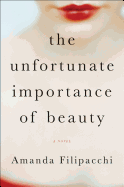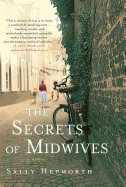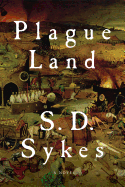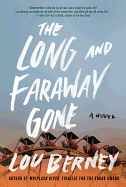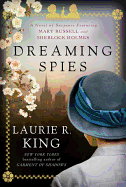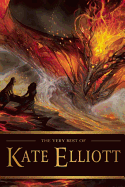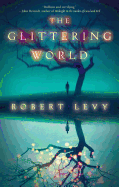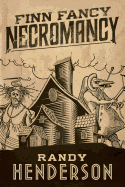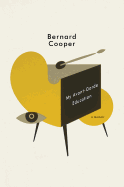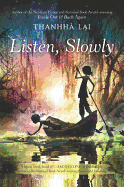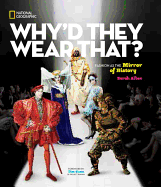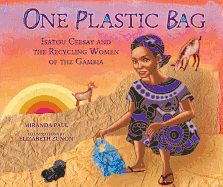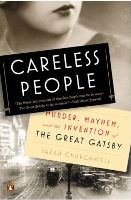 Careless People: Murder, Mayhem and the Invention of the Great Gatsby by Sarah Churchwell (Penguin, $17)
Careless People: Murder, Mayhem and the Invention of the Great Gatsby by Sarah Churchwell (Penguin, $17)
With new research and new angles on The Great Gatsby and its place in history, Sarah Churchwell takes on F. Scott Fitzgerald's mythically proportioned masterpiece in Careless People, an expansive study of biography, history, literary criticism and cultural connections. Her inquiries focus on a double-murder involving a socially ambitious lower-class woman and a respected rector.
My Life in Middlemarch by Rebecca Mead (Broadway, $15)
Rebecca Mead revisits her love of George Eliot's novel to consider the ways life and art influence and imitate each other. The result is a lively appreciation of one of the greatest novels in the English language. Blending biography, literary criticism and personal memoir, Mead reflects on her own journey to marriage and a blended family, finding the spirit of her experience in Eliot's life.
The Triple Package: How Three Unlikely Traits Explain the Rise and Fall of Cultural Groups in America by Amy Chua and Jed Rubenfeld (Penguin, $17)
Husband-and-wife law professors at Yale offer an intriguing explanation for the disproportionate success of certain groups in American society. Three characteristics--a superiority complex, insecurity and impulse control--comprise what Chua (author of The Battle Hymn of the Tiger Mother) and Rubenfeld call the "Triple Package." As impressive a spur to achievement as it may be, the Triple Package is anything but an unalloyed good.
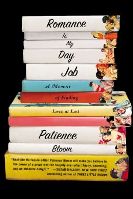 Romance Is My Day Job: A Memoir of Finding Love at Last by Patience Bloom (Plume, $16)
Romance Is My Day Job: A Memoir of Finding Love at Last by Patience Bloom (Plume, $16)
An editor for Harlequin chronicles her search for love in Romance Is My Day Job. Patience endures a series of bad relationships as she moves around the United States, until she lands her job at Harlequin. By the time she turns 40, Bloom--professionally successful, but still single--had concluded, "My life is nothing like these books, not even a little bit."
City of God: Faith in the Streets by Sara Miles (Jericho/Grand Central, $16)
Sara Miles found both God and community inside the walls of the church. But after becoming a lay minister, Miles felt an opposite, irresistible call: to take her faith back to the streets. She grounds her story in the events of Ash Wednesday 2012, when she and several friends carried ashes into San Francisco's Mission neighborhood.
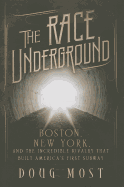 The Race Underground: Boston, New York, and the Incredible Rivalry That Built America's First Subway by Doug Most (St. Martin's, $16.99)
The Race Underground: Boston, New York, and the Incredible Rivalry That Built America's First Subway by Doug Most (St. Martin's, $16.99)
As industrial innovation and waves of immigration led to the dramatic growth of New York and Boston in the 19th century, both cities needed to find new ways to move people around. In The Race Underground, Boston Globe editor Doug Most recounts the remarkable achievements in civil engineering that transformed two cities, along with the political and financial intrigues that accompanied them.
I Forgot to Remember: A Memoir of Amnesia by Su Meck, with Daniel de Visé (Simon & Schuster, $15.99)
When 22-year-old Su Meck was struck on the head by a ceiling fan, her life vanished. Everything she had ever done, everyone she had ever met and everything she knew how to do, including read, write and tie her own shoes, disappeared. In I Forgot to Remember, Meck gives voice to the overwhelming confusion following her traumatic brain injury.
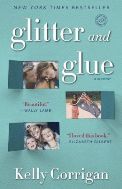 Glitter and Glue: A Memoir by Kelly Corrigan (Ballantine, $16)
Glitter and Glue: A Memoir by Kelly Corrigan (Ballantine, $16)
As her parents' only daughter, Kelly Corrigan grew up adoring and being adored by her joyous, optimistic dad. But her relationship with her firm, proud, stoic mother was much more complicated. When Corrigan was in high school, her mother summed up the family dynamic: "Your father's the glitter, but I'm the glue." It would take Corrigan years to realize how much she needed both.
Trapped Under the Sea: One Engineering Marvel, Five Men, and a Disaster Ten Miles into the Darkness by Neil Swidey (Broadway, $15)
Neil Swidey tells the unforgettable story of an ambitious engineering project and the disaster that could have been averted. Boston Harbor was an environmental ruin when the state finally mandated a cleanup, so the city built a highly sophisticated waste-treatment plant on Deer Island. When the overdue project was nearly complete, one final task ended in an accident that seems unavoidable in hindsight.
The Tastemaker: Carl Van Vechten and the Birth of Modern America by Edward White (Farrar, Straus & Giroux, $17)
The Tastemaker is a vividly detailed biography of Carl Van Vechten, one of the most influential American cultural figures of the early 20th century. Working first as a reporter and later as a novelist, Van Vechten promoted his beloved modernist art, along with the causes of many musicians--including African-American jazz musicians he met during his forays into Harlem.
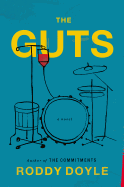 The Guts by Roddy Doyle (Penguin, $16)
The Guts by Roddy Doyle (Penguin, $16)
Roddy Doyle's often funny, bittersweet and unsentimental follow-up to The Commitments re-introduces Jimmy Rabbitte, now facing his mortality yet still finding joy in the music of his youth and the people he loves. Jimmy runs with his wife's brilliant idea of finding the musicians from old bands and bringing them together to play their resurrected albums.
Mercy Snow by Tiffany Baker (Grand Central, $15)
Mercy Snow juxtaposes the good and evil, the haves and the have-nots of a struggling mill town. The people of Titan Falls hate the polluted muck of the Androscoggin River, and they hate the Snow clan. They have to put up with the river, vital to the paper mill operation, but nobody has any use for Mercy Snow and her kin.
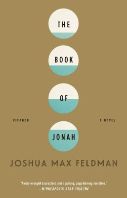 The Book of Jonah by Joshua Max Feldman (Picador, $16)
The Book of Jonah by Joshua Max Feldman (Picador, $16)
In Joshua Max Feldman's loose retelling of the biblical Jonah story, Jonah Jacobstein is a young New York City lawyer on a partnership track, romantically entangled with both his future fianceé and an off-again, on-again girlfriend. Then visions of the city sinking underwater and his fellow citizens walking about naked upend his success and take him on a journey into self-doubt and self-discovery.
Influx by Daniel Suarez (Signet, $9.99)
Daniel Suarez's SF thriller Influx offers an unsettling reason for the apparently stagnant state of technological progress since the 1960s: over the last half-century, an increasingly tyrannical top-secret government bureau has abducted the greatest scientific minds and seized their fledgling breakthroughs. Eccentric physicist Jon Grady learns about the bureau's existence when he's abducted from his lab after inventing a type of anti-gravity machine.
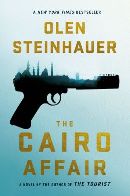 The Cairo Affair by Olen Steinhauer (Picador, $16)
The Cairo Affair by Olen Steinhauer (Picador, $16)
Over dinner one night in a Budapest restaurant, U.S. consul Emmett Kohl confronts his wife, Sophie, with his knowledge of her affair with a CIA spy. Before Sophie can overcome her shock, a gunman enters the restaurant and shoots Emmett dead at the table. The gunman gets away, and Sophie returns to Cairo, where Emmett was stationed before Budapest, to solve his murder.
Marshlands by Matthew Olshan (Farrar, Straus & Giroux, $14)
An aging and beaten prisoner is returned to "the capital," a city now entirely unrecognizable to him. Eventually restored to a semblance of his previous self, the man works in a hospital for marshland refugees. It turns out he spent years as a military doctor with the occupying army of the marshlands, where he committed a startling crime that put him in jail.
The Good Luck of Right Now by Matthew Quick (Harper Paperbacks, $14.99)
With the death of Bartholomew Neil's mother, he is suddenly on his own, uncertain of how to pay his bills, get a job, make friends or move on with his life. Somewhat illogically, he begins to write to Richard Gere, his mother's favorite actor, confiding in him about his uncertainty over what the future holds and his struggles with grief counseling.
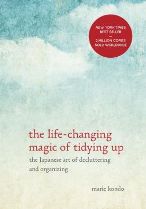










 Former U.S. poet laureate
Former U.S. poet laureate 